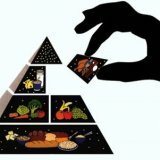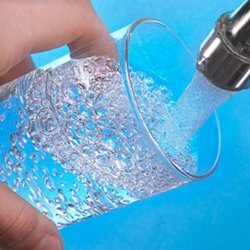What can replace meat in the diet?

Some nuances. ..
However, besides the useful qualities of meat, there is a whole list of negative points. With the constant consumption of meat food in the human body, a foreign protein is produced, which under favorable conditions can activate the growth of cancer cells.
In addition to iron and protein, providing us with energy, meat is high in cholesterol and fat, which is one of the main causes of cardiovascular diseases.
It is worth noting the oxidizing properties of meat. These are the important amino acids that meat advocates say, burning them, they form strong acids, and the body has to put a lot of effort into neutralizing them.
Do not benefit the body and the purine bases contained in meat, especially worsening the situation with metabolic disorders. When preparing meat broth, purine bases move into the liquid, and when used create an acidic medium, increasing the level of lactic acid. This causes the occurrence of arthritis, arthrosis and other joint diseases.
And we can not say about the presence in the meat of putrefactive bacteria, the products of vital activity of which, do not decompose during heat treatment and, getting into the body, cause poisoning.
Meanwhile, the human body needs energy, coming in the form of carbohydrates, which can be used quickly for the intended purpose.
But are the micronutrients and proteins contained in meat so indispensable and what can be substituted for meat in the diet?
There is a choice!
An alternative can be microelements and proteins contained in plant foods.
For example, soybeans, cereals and legumes, in terms of protein content, are slightly higher than meat, but they are able to provide a sufficient amount of vegetable protein, which, unlike the animal, does not contain essential amino acids. This situation can be overcome, with the right combination of food. Legumes have a significant content of lysine and a small content of methionine and tryptophan, but in rice, the presence of these elements is distributed to the exact opposite. But the combination of these products leads to a balanced diet and perfectly satisfies the need for protein.
In addition, legumes are rich in trace elements and B vitamins, and since they contain a significant amount of fiber and fiber, it has a beneficial effect on digestion.
Having carried out a comparative analysis among cereals, the first place in useful properties can be given to buckwheat with confidence, yielding only protein to legumes, it has a high content of iron and other microelements. Buckwheat, improves hematopoiesis and gives strength and endurance, is popular in sports nutrition and folk medicine.
Another representative of cereals - oats, rich in fats, promotes normalization of pressure and displays cholesterol.
By shares of vitamins and biologically active substances in a row of cereal wheat, and to be precise its cereal shell( bran), is one of the main crops capable of replacing meat and consumed in dietary and therapeutic nutrition.
Another interesting specimen from the world of plants is peas. It, like all beans is saturated with vitamins, trace elements and protein, and only slightly inferior to beef in their content. Studies have shown that peas, due to their unique composition, have anti-cancer properties and are capable of removing radioactive and carcinogenic substances from the body.
The same properties are given to beans. In addition to the high content of macro and micronutrients, beans can reduce blood sugar, so it is indispensable in the diet of patients with diabetes.
And, of course, a special place among legumes is soy, which due to its most valuable qualities has the second name "meat of the 21st century" - the protein of soybean is absorbed by the human body by more than 90 percent. In this case, the body receives vegetable protein without cholesterol and fat present in the meat.
The main argument of meat eaters is that vitamin B12, involved in metabolism, hematopoiesis and nervous activity, is contained exclusively in meat. However, due to the fact that the body's need for vitamin B12 is quite small, it can be made up by eating seaweed, lettuce, fish and seafood.
It is possible to replace meat in the diet for any reason, and this will not only do no harm, but will in many ways contribute to strengthening and restoring health, and hence the life expectancy that most vegetarians clearly demonstrate.
Our nature is so rich that an alternative can always be found. And, having considered all the advantages and disadvantages, everyone can make a conclusion to eat or completely replace the meat in the diet.



